Here's Why Netflix's "Blonde" Is Being Called Out For Its Portrayal Of Abortion
Heads up: This article mentions sexual assault.
If you've heard of the Netflix movie Blonde, then you probably know it's already been the subject of a lot of controversy. The NC-17 drama film — which is based on the novel of the same name — is a fictionalized depiction of the life of actor Marilyn Monroe.
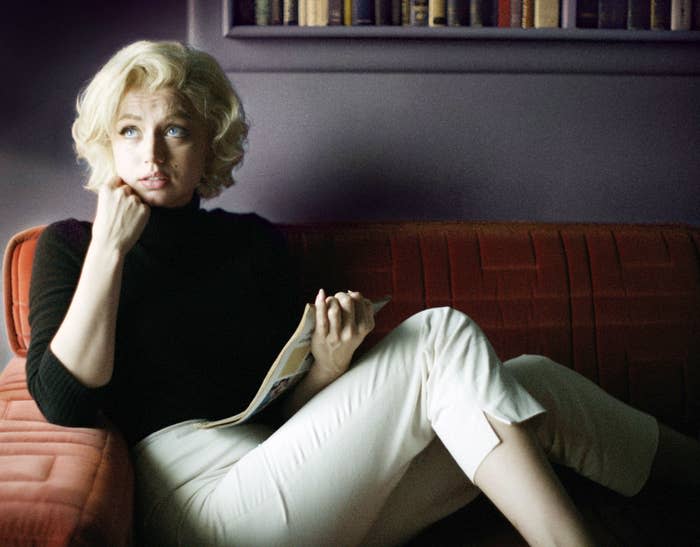
Many viewers have criticized Blonde for being sexist, inaccurate, and exploitative. One scene in particular that depicts a graphic sexual encounter between a drugged Monroe and "the president" (clearly implied to be President John F. Kennedy) has garnered backlash.
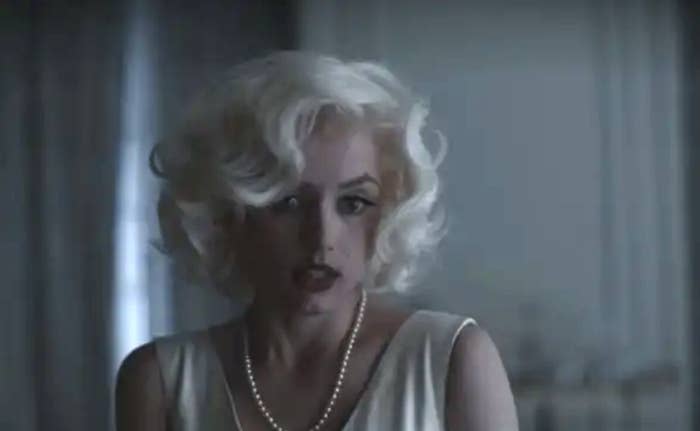
While there have been long-standing rumors of a sexual relationship between Monroe and JFK, nothing has ever been confirmed.
Now another aspect of Blonde is being critcized: its depiction of abortion. Early in the film, Monroe initially decides to have an abortion but changes her mind at the last minute. She's then forced to have one despite her objections. Later on in the film, Monroe is kidnapped by Secret Service agents, who force her to have another abortion in order to hide her and JFK's "affair." The abortion is performed against her will, and she wakes up afterward covered in blood.
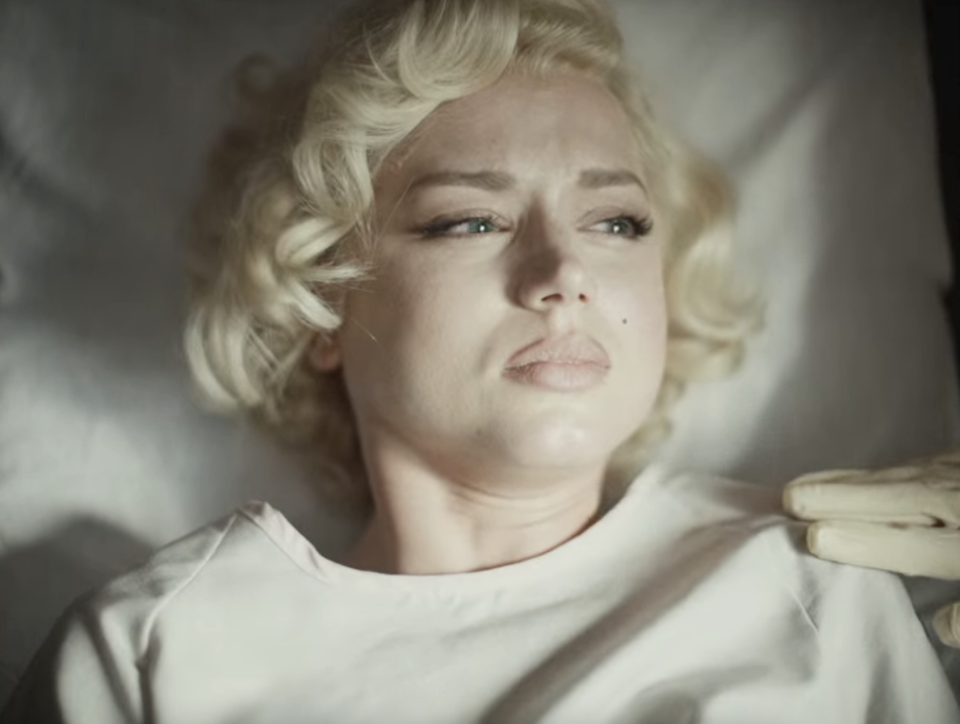
According to historians, the real-life Monroe reportedly had several miscarriages (she also allegedly had endometriosis), but there's no evidence that she ever had an abortion.
In addition, there's a scene in the film where Monroe, then pregnant by her third husband, Arthur Miller, has a "conversation" with a computer-generated image of her fetus. Although Monroe was early in the pregnancy, the fetus is depicted as fully formed, saying to her, "You won't hurt me this time, will you?" Shortly afterward, she miscarries.
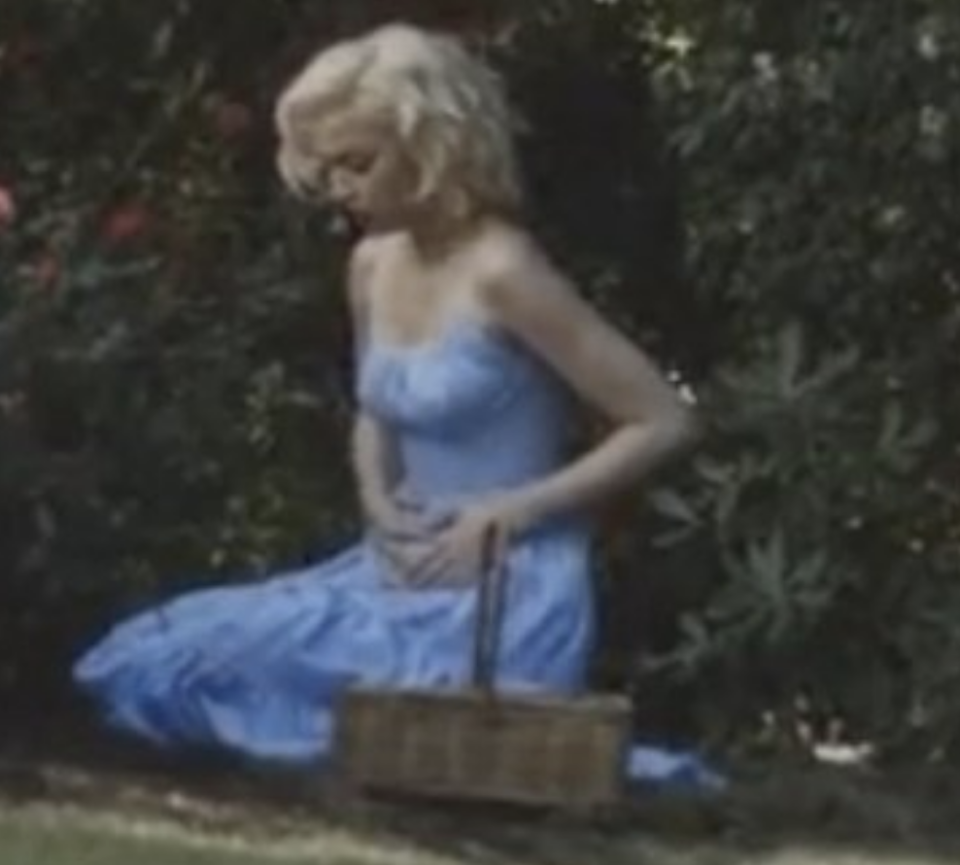
People quickly called out the scene as being anti-abortion and inaccurate:
@gaynarowlands @JeAVRIL93 Ignoring the fact that the whole concept of this scene is disgusting, her stomach is flat and you’re telling me she has a fully formed baby in there?! Can’t believe this movie got made. Someone needs to make a respectful Marilyn biopic so people can see how she really was!
@unknowntrin I was not ready for the anti-abortion message in this movie. I turned it off when her fetus talked to her.I should've known better but yeesh...
I had the extreme misfortune of watching Blonde on Netflix last night and let me tell you that movie is so anti-abortion, so sexist, so exploitative. CanNOT recommend it LESS. Do not watch. The abortion scenes in particular are terrible, but so is the whole entire movie.
Viewers also noted that the scene was in especially poor taste considering that the Supreme Court overturned Roe v. Wade in June:
Was that anti abortion plot line in Blonde necessary given where we’re at right now? Like read the room
Planned Parenthood condemned the film as "anti-abortion propaganda." Caren Spruch, the organization's national director of arts and entertainment engagement, told the Hollywood Reporter: "As film and TV shapes many people’s understanding of sexual and reproductive health, it’s critical these depictions accurately portray women’s real decisions and experiences. While abortion is safe, essential health care, anti-abortion zealots have long contributed to abortion stigma by using medically inaccurate descriptions of fetuses and pregnancy."
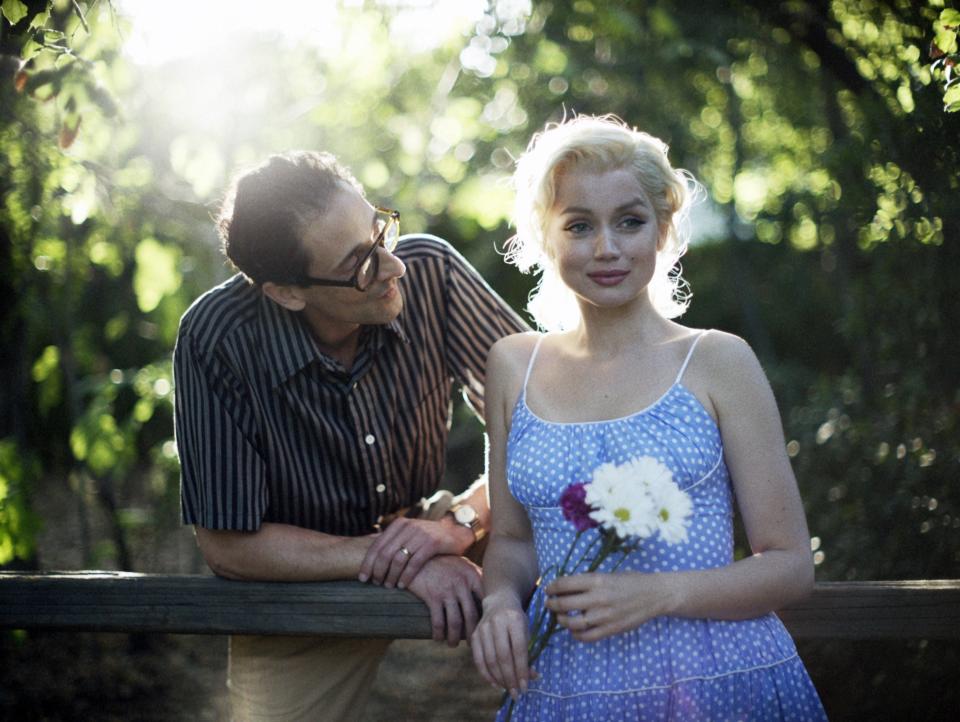
"Blonde bolsters their message with a CGI-talking fetus, depicted to look like a fully formed baby," Spruch continued. "Planned Parenthood respects artistic license and freedom, however, false images only serve to reinforce misinformation and perpetuate stigma around sexual and reproductive health care. Every pregnancy outcome — especially abortion — should be portrayed sensitively, authentically, and accurately in the media. We still have much work to do ensure that everyone who has an abortion can see themselves onscreen. It is a shame that the creators of Blonde chose to contribute to anti-abortion propaganda and stigmatize people’s health care decisions instead."
The film's writer and director, Andrew Dominik, denied that the scene is meant to be anti-abortion. "I don't think the movie is anti–pro choice. [...] What the movie is saying is she’s not seeing reality," he said in an interview with the Wrap. "She’s seeing her own fears and desires projected onto the world around her. You see it constantly time and again that she’s reacting to a story that she’s carrying inside her."

"I think sort of this desire to look at Blonde through this Roe v. Wade lens is everybody else doing the same thing. They’ve got a certain agenda where they feel like the freedoms of women are being compromised, and they look at Blonde and they see a demon, but it’s not really about that," Dominik continued. "I think it’s very difficult for people to step outside of the stories they carry inside themselves and see things of their own volition. And I think that’s really what the movie is about. The dangers of that. But you know, it’s difficult for people to be able to hold two things in their mind at once. It’s either black or white."
